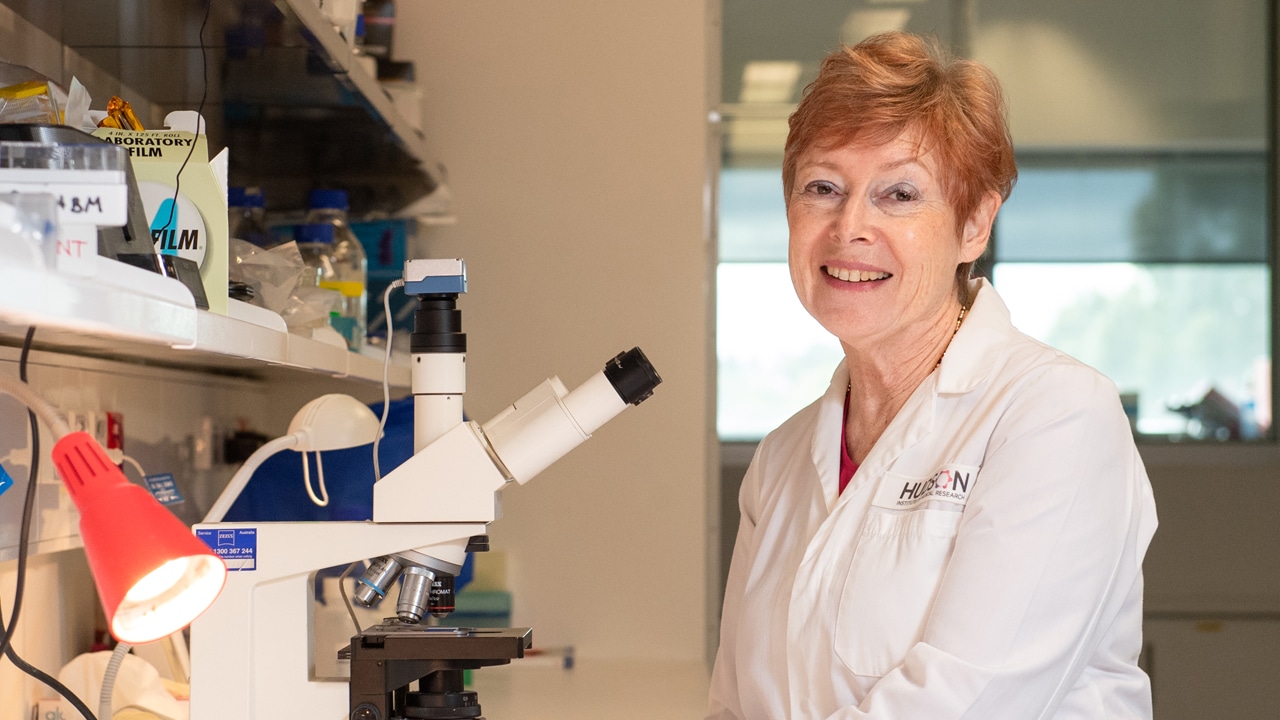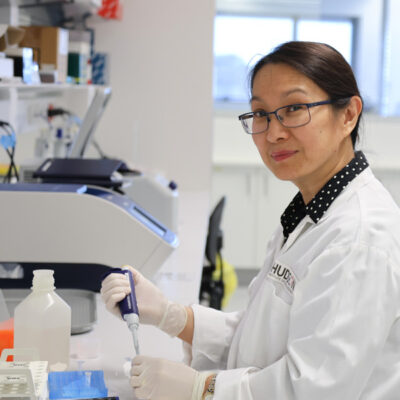Million-dollar prize for team developing new vaginal reconstruction biomaterials
By Rob Clancy, staff writer. Reviewed by Professor Caroline Gargett

An international team developing new technologies for vaginal reconstruction has been awarded a prestigious million-dollar prize.
Hudson Institute’s Professor Caroline Gargett is the key international member of the team which was awarded the $US1 million Magee Prize for their work on identifying vaginal stem cells to use with new biomaterials to repair tissue loss in women with compromised vaginal structure and function.
Led by American, Professor Pamela Moalli, Director of Urogynaecology and Pelvic Reconstruction Surgery at UPMC Magee-Womens Hospital, Pittsburgh, the team also includes Professor Kyle Orwig, from the University of Pittsburgh School of Medicine, USA.
Missing link in vaginal reconstruction
Their truly multi-national project is entitled ‘Vaginal Stem Cells: the missing link in vaginal reconstruction’.
Professor Gargett is world-renowned for discovering stem/progenitor cells in human endometrium, the highly regenerative lining of the uterus, thereby establishing a new field of research in reproductive biology. She will apply her knowledge and expertise to discover stem cells in human vagina.
At Hudson Institute, she is now applying these breakthroughs to common gynaecological disorders. Her research group currently comprises five postdoctoral scientists, three support staff and six students.

Professor Gargett’s leadership in the field of endometriosis research has recently been recognised by the Endometriosis Foundation of America (EndoFound), which named her among the inaugural members of its Scientific Advisory Board.
She is also on the International Scientific Committee of the Fondation Pour la Recherche sur l’Endométriose in France.
The road to the Magee Prize began with many initial applications which were narrowed down to 15 for peer review. Six were then chosen for a second round of international peer review, which selected three.
Each team then prepared a 15-minute presentation which was delivered at the Magee Womens Health Research Summit – some from the other side of the world – with the audience also voting and contributing to the final decision.
Stem cell technology – the future of vaginal reconstructive surgery
The prize means this important work will commence, providing new hope for women worldwide.
Speaking about the award, Professor Gargett said: “Having worked on developing tissue engineering constructs for supporting the prolapsed vagina, I knew how important this new area of research would be.”
“This important research is for women without a vagina or who have lost much of it via life-saving surgery – it is to give them their lives back.”
Receiving the award Professor Moalli said: “I am beyond excited about this study because it provides a viable solution to young girls and women in whom vaginal structure and function has been compromised. Stem cell technologies for use in tissue biofabrication is where the future of reconstructive surgery lies.”
Collaborators | Magee-Womens Research Institute
This research was supported by | Richard King Mellon Foundation
In this article
About Hudson Institute
Hudson Institute’ s research programs deliver in three areas of medical need – inflammation, cancer, women’s and newborn health. More
Hudson News
Get the inside view on discoveries and patient stories
“Thank you Hudson Institute researchers. Your work brings such hope to all women with ovarian cancer knowing that potentially women in the future won't have to go through what we have!”





